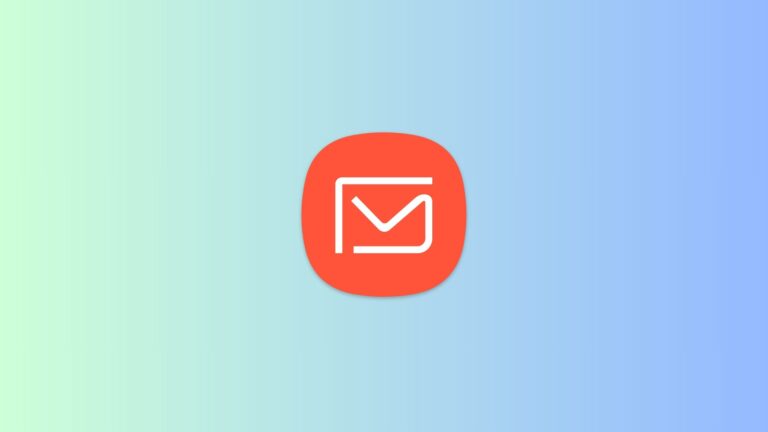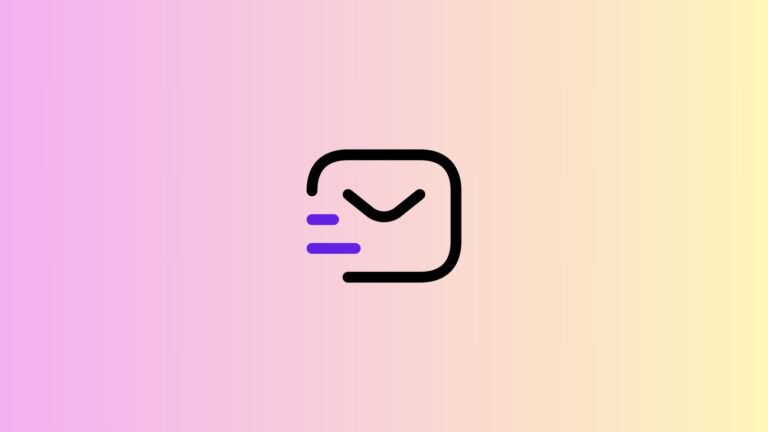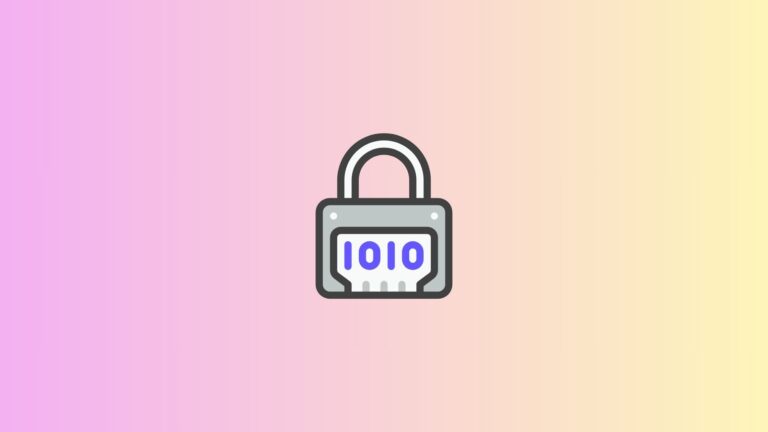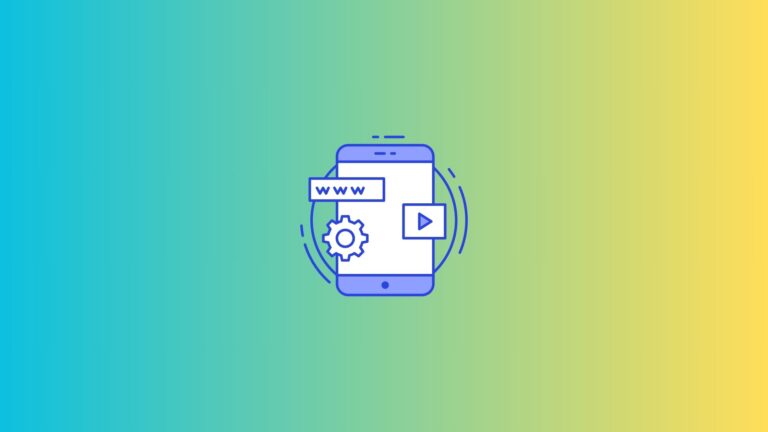Top 10 WhatsApp Marketing Software in 2025: Best Tools for Engagement & Sales
You send an email campaign, and 20% of people open it. Not bad, right? Now imagine sending a WhatsApp message and 98% of recipients actually read it. That’s not wishful thinking, it’s reality.
WhatsApp has quietly become the marketing channel that makes other platforms look like they’re stuck in 2010. With 2.78 billion users worldwide, it’s not just popular; it’s practically unavoidable. Companies switching to WhatsApp marketing are seeing conversion rates jump by 700%. Yes, you read that correctly.
But here’s the catch: most businesses are still fumbling around with basic broadcast messages, completely missing the automation goldmine. Meanwhile, savvy companies are utilizing sophisticated WhatsApp marketing platforms to craft personalized customer journeys that would make email marketers envious.
After testing 25 different WhatsApp marketing tools over six months (and burning through more coffee than advisable), We’ve narrowed down the list to the absolute best platforms for 2025. This isn’t another generic software roundup. These are battle-tested recommendations based on real results from actual businesses.
What Changed in WhatsApp Marketing During 2025
Remember when WhatsApp was just for sending “Good morning” memes to family groups? Those days are long gone. This year brought massive updates that completely transformed how businesses use the platform.
The WhatsApp Business API got a major facelift. Product catalogs now integrate seamlessly with messages, letting customers browse and buy without leaving the chat. Payment processing became smoother than a fresh jar of Nutella. Plus, the new webhook system means your favorite CRM can finally talk to WhatsApp without having a nervous breakdown.
But the real game-changer? AI integration. ChatGPT and similar chatbot tools can now handle customer conversations so naturally that users often can’t tell they’re chatting with a bot. One clothing brand reported its AI assistant handled 89% of customer inquiries without human intervention. Their sales team suddenly had time to actually, you know, sell stuff.
Compliance got stricter, too. GDPR and CCPA regulations now apply more strictly to messaging platforms. The good news? Customers actually prefer the transparency. When you ask permission properly, response rates often improve.
Cross-platform integration reached new heights. Your WhatsApp campaigns can now trigger email sequences, update Instagram ads, and sync with Facebook Messenger campaigns. It’s like having a marketing orchestra where every instrument plays in perfect harmony.
How We Tested These WhatsApp Marketing Platforms
Testing software is usually about as exciting as watching paint dry. But when real money is on the line, boring becomes important.
We ran each platform through a 90-day gauntlet using live businesses across different industries. A fitness studio, an e-commerce store, a SaaS company, and a local restaurant all participated. Each business had different needs, budgets, and technical capabilities.
Our testing criteria were simple but tough. Message delivery had to be lightning-fast and reliable. Automation needed to work without constant babysitting. Integrations couldn’t break every time someone sneezed. Pricing had to be transparent (no nasty surprises at renewal time). Customer support had to actually help instead of sending generic responses.
We measured everything: delivery rates, response times, conversion percentages, setup complexity, and user satisfaction scores. Some platforms looked amazing in demos but crumbled under real-world pressure. Others seemed basic but delivered consistently outstanding results.
The results surprised us. The most expensive platform wasn’t always the best. The simplest interface didn’t guarantee the easiest experience. Sometimes, the underdog performed better than the industry leader.
Top 10 WhatsApp Marketing Software Rankings
1. Insider
Insider takes the top spot because it treats WhatsApp as part of a bigger marketing ecosystem rather than an isolated channel. While most platforms focus on sending messages, Insider orchestrates entire customer journeys across multiple touchpoints.
Their AI engine analyzes customer behavior patterns and predicts the perfect moment to send each message. One electronics retailer saw their click-through rates jump from 12% to 47% after implementing Insider’s predictive send-time optimization.
The platform integrates with practically everything. Shopify, Salesforce, HubSpot, Google Analytics, if it exists in the marketing world, Insider probably connects to it. Setting up complex automation workflows feels surprisingly intuitive, thanks to their visual journey builder.
However, Insider isn’t for everyone. The learning curve is steep, and pricing starts at $2,500 monthly. Small businesses might feel overwhelmed by the feature set. But for enterprises handling millions of customer interactions, it’s pure gold.
Best for: Large companies needing sophisticated cross-channel automation
Pricing: Custom enterprise pricing from $2,500/month.
Standout feature: Predictive AI that optimizes send times and content
2. AiSensy
AiSensy strikes the perfect balance between power and simplicity. As an official WhatsApp Business Solution Provider, they handle the technical complexity while keeping the user experience refreshingly straightforward.
Their chatbot builder deserves special mention. Instead of requiring coding skills, you can create sophisticated conversation flows using a drag-and-drop interface. Natural language processing handles customer queries so well that many businesses report 80% automation rates within the first month.
The platform excels at team collaboration. Multiple agents can handle conversations simultaneously without stepping on each other’s toes. Smart routing ensures VIP customers always reach senior team members, while routine inquiries get handled automatically.
AiSensy’s customer support sets the gold standard. Every customer gets a dedicated success manager during onboarding. Response times average under two hours, and their help documentation actually makes sense.
The downside? Advanced analytics could be more detailed. Some competitors offer deeper reporting capabilities for data-hungry marketers.
Best for: Growing businesses wanting professional features without enterprise complexity.
Pricing: Growth plan ₹2,499/month, Pro plan ₹4,499/month.
Standout feature: Comprehensive onboarding with a dedicated success manager
3. WebEngage
WebEngage approaches WhatsApp marketing like a data scientist approaches research. Every customer interaction becomes a data point that improves future campaigns.
Their customer data platform creates unified profiles combining WhatsApp activity with website behavior, email engagement, and purchase history. This 360-degree view enables personalization that feels almost psychic. Customers receive messages about products they were just browsing or offers perfectly timed with their buying patterns.
The segmentation capabilities are incredibly granular. You can target customers who opened your WhatsApp message but didn’t click, then visited your website within 24 hours, and have a lifetime value above $500. Try doing that with email marketing.
A/B testing extends beyond simple message variations. You can test sending times, automation sequences, and even customer service approaches. The statistical significance calculations help you make decisions based on real data rather than gut feelings.
The complexity can be overwhelming for smaller teams. WebEngage works best when you have dedicated marketing professionals who love diving into data.
Best for: Data-driven companies prioritizing personalized customer experiences
Pricing: Custom pricing starting at $300/month for startups.
Standout feature: Advanced customer data platform with predictive segmentation
4. MoEngage
MoEngage built its platform around one simple question: how do we turn more prospects into customers and customers into advocates? Everything they do serves that goal.
Their predictive analytics identify customers most likely to churn, make repeat purchases, or respond to specific offers. Instead of sending generic messages to everyone, you can focus efforts on segments with the highest probability of success.
Customer journey optimization uses machine learning to identify bottlenecks in your conversion funnel. Maybe customers who receive welcome messages on Tuesday have higher lifetime values. Perhaps product recommendations work better as images than text. MoEngage finds these patterns automatically.
The attribution reporting shows exactly how WhatsApp contributes to your bottom line. You can track a customer’s journey from their first WhatsApp interaction through multiple touchpoints to the final purchase. CFOs love this level of accountability.
MoEngage works best for businesses obsessed with growth metrics. If you’re not measuring LTV, CAC, and retention rates, many features might feel like overkill.
Best for: E-commerce and SaaS companies focused on measurable growth
Pricing: Starter plan $99/month, Growth plan $999/month.
Standout feature: Predictive analytics for customer behavior and churn prevention
5. Wati
Sometimes you just want software that works without requiring a computer science degree. Wati delivers exactly that experience.
The setup process takes about 48 hours from signup to sending your first campaign. Their template library covers most common use cases, from appointment reminders to abandoned cart recovery. Customization is simple enough that non-technical team members can handle it independently.
The no-code chatbot builder uses conversational design principles that actually make sense. Instead of complex decision trees, you create natural conversation flows. Customers feel like they’re chatting with a helpful human rather than fighting with a stubborn robot.
Team collaboration features shine in small businesses. The shared inbox prevents duplicate responses and ensures no customer gets ignored. Smart assignment rules distribute conversations based on expertise and availability.
Wati’s limitations become apparent in enterprise environments. Advanced automation and detailed analytics lag behind more sophisticated platforms. But for small to medium businesses, these limitations rarely matter.
Best for: Small businesses wanting a quick setup and easy management
Pricing: Starter $39/month, Growth $69/month, Pro $149/month.
Standout feature: 48-hour average setup time with comprehensive templates
6. SleekFlow
SleekFlow recognizes that modern customers hop between platforms like caffeinated squirrels. Their unified inbox combines WhatsApp, Instagram, Facebook Messenger, and WeChat into a single conversation stream.
The social commerce tools integrate seamlessly with Instagram Shopping and Facebook Shops. Customers can discover products on social media, get detailed information via WhatsApp, and complete purchases without platform switching. This smooth experience significantly reduces cart abandonment.
Order tracking automation keeps customers informed without overwhelming your support team. Shipping notifications, delivery confirmations, and review requests happen automatically. One fashion retailer reduced “Where’s my order?” inquiries by 73% after implementation.
Live chat handover works flawlessly when human intervention is needed. Customers never feel abandoned when complex issues arise. The transition from bot to human feels natural and maintains conversation context.
SleekFlow’s focus on social commerce means traditional email marketing integrations could be stronger. Companies heavily invested in email campaigns might need additional tools.
Best for: Social commerce businesses and customer service-focused companies
Pricing: Starter $79/month, Pro $159/month, Premium $399/month.
Standout feature: Unified social media inbox with seamless commerce integration
7. Twilio
Twilio doesn’t just offer WhatsApp marketing – they provide the building blocks for creating custom messaging solutions. If you can dream it, you can probably build it with their APIs.
The infrastructure handles massive scale effortlessly. Companies sending millions of messages monthly rely on Twilio’s 99.95% uptime guarantee. During Black Friday traffic spikes, while other platforms struggle, Twilio keeps humming along smoothly.
Global reach includes local data residency options for companies navigating international privacy regulations. Your European customer data stays in Europe, your Asian data stays in Asia, and compliance teams sleep better at night.
The developer documentation reads like it was written by people who actually code for a living. Clear examples, practical tutorials, and responsive support make integration surprisingly straightforward for technical teams.
However, Twilio requires significant development resources. Non-technical users will struggle without programmer support. Pre-built marketing features are limited compared to specialized platforms.
Best for: Enterprise companies with dedicated development teams
Pricing: Pay-per-message starting at $0.005 per message.
Standout feature: Enterprise-grade API infrastructure with global reach
8. Userlike
Userlike treats WhatsApp as an extension of your customer service strategy rather than just another marketing channel. Their approach works brilliantly for companies prioritizing support quality over pure sales volume.
The live chat integration creates seamless handoffs from website visitors to WhatsApp conversations. Customers can start chatting on your website and continue the conversation on their phone without missing a beat. Context remains intact throughout the transition.
AI chatbots handle routine inquiries while smoothly escalating complex issues to human agents. The handoff process maintains conversation history, so customers never repeat themselves. Agent productivity improves while customer satisfaction scores climb.
Customer satisfaction surveys integrate naturally into conversation flows. Instead of sending separate emails, you can gather feedback immediately after resolving issues. Response rates are significantly higher than traditional survey methods.
Marketing automation features lag behind specialized platforms. Companies primarily focused on lead generation might need supplementary tools.
Best for: Customer service teams prioritizing support quality.
Pricing: Team plan €90/month, Corporate plan €290/month.
Standout feature: Seamless live chat to WhatsApp handover with context preservation
9. NotifyVisitors
NotifyVisitors excels at turning website visitors into WhatsApp leads. Their approach combines traditional web analytics with messaging platform capabilities.
Website visitor tracking identifies high-intent prospects before they leave your site. Exit-intent popups offer WhatsApp support instead of generic email signup forms. Conversion rates often double because customers prefer instant messaging over filling out forms.
Lead scoring algorithms rank prospects based on behavior patterns and engagement levels. Sales teams receive qualified leads rather than random contact information. One B2B software company reduced its sales cycle by 35% using NotifyVisitors’ qualification system.
The platform integrates with popular CRM systems to maintain lead quality and follow-up consistency. Marketing and sales teams stay aligned through automated workflows and shared dashboards.
Advanced messaging features don’t match specialized WhatsApp platforms. Companies needing sophisticated chatbots or complex automation might require additional tools.
Best for: Businesses focusing on website-to-WhatsApp lead conversion.
Pricing: Starter $49/month, Business $149/month, Enterprise $499/month.
Standout feature: Advanced web visitor tracking with WhatsApp conversion optimization
10. BotSpace
BotSpace represents the cutting edge of conversational AI. Their GPT-4-powered chatbots conduct conversations so naturally that customers often forget they’re talking to software.
Multi-language support includes automatic translation between languages during conversations. A Spanish-speaking customer can chat with an English-speaking bot, and both sides understand each other perfectly. Global businesses love this capability.
Voice message processing handles audio inputs and responds appropriately. Customers can send voice notes instead of typing, and the bot extracts meaning and responds contextually. This feature particularly appeals to mobile-first markets.
Advanced intent recognition understands context across multiple message exchanges. Instead of requiring specific keywords, customers can express their needs naturally. The system connects dots between related concepts and provides relevant responses.
BotSpace is relatively new, so proven case studies are limited compared to established platforms. The advanced AI capabilities come with a learning curve that might challenge non-technical users.
Best for: Companies wanting cutting-edge AI conversation capabilities.
Pricing: Basic $99/month, Pro $299/month, Enterprise $999/month.
Standout feature: GPT-4 powered conversations with natural language processing
Platform Comparison: The Numbers That Matter
Choosing between platforms becomes easier when you compare key metrics side by side. Message delivery rates vary significantly from 94% to 99.2%. Setup complexity ranges from plug-and-play simple to requires-a-developer complicated.
Pricing models differ dramatically, too. Some charge per message, others use monthly subscriptions, and enterprise platforms prefer custom contracts. Total cost of ownership includes hidden expenses like setup fees, integration costs, and training time.
Customer support quality spans from excellent to frustrating. Response times range from under two hours to several days. Some platforms offer dedicated success managers, while others rely on generic help desks.
Integration capabilities determine how well each platform plays with your existing tools. E-commerce businesses need Shopify connections, while B2B companies require CRM synchronization. Marketing teams want email platform integration for cross-channel campaigns.
Industry-Specific Recommendations
E-commerce businesses should prioritize platforms with strong product catalog integration and abandoned cart recovery. Insider, SleekFlow, and WebEngage excel in this area. Look for features like automatic product recommendations, inventory sync, and purchase confirmation flows.
SaaS companies benefit from platforms offering trial nurturing sequences, feature announcement capabilities, and user onboarding automation. MoEngage, AiSensy, and Wati provide excellent tools for subscription-based businesses.
Healthcare organizations must prioritize HIPAA compliance and secure messaging. Twilio offers the strongest security features, while Userlike provides excellent patient communication tools. Always verify compliance requirements with your legal team.
Educational institutions need student engagement tools, course marketing capabilities, and parent communication features. AiSensy and Wati offer education-specific templates and workflows that work well in academic environments.
Real estate professionals require location-based messaging, lead qualification tools, and appointment scheduling integration. NotifyVisitors excels at capturing and qualifying property leads through WhatsApp conversations.
Implementation Strategy: Getting Started Right
Success starts before you send your first message. Phase one involves setting up your WhatsApp Business API account and completing verification. This process typically takes 7-14 days, so plan accordingly.
Integration planning prevents headaches later. Document your current tools, identify required connections, and test integrations thoroughly before going live. Many implementations fail because teams rush this crucial step.
Campaign setup requires careful consideration of your customer journey. Map out touchpoints where WhatsApp adds value rather than annoyance. Start with high-impact, low-complexity campaigns like order confirmations or appointment reminders.
Testing protocols ensure everything works under real conditions. Send messages to internal team members first, then gradually expand to small customer segments. Monitor delivery rates, response times, and customer feedback closely.
Common mistakes include sending too many messages too quickly, ignoring customer preferences, and automating conversations that need human touch. Start conservatively and scale based on results rather than assumptions.
Pricing Analysis: What You Really Pay
Advertised pricing rarely tells the complete story. Setup fees, integration costs, training expenses, and additional user licenses add up quickly. Some platforms charge extra for premium features that seem basic.
Message volume significantly impacts costs. Platforms using per-message pricing become expensive at scale, while monthly subscriptions might be wasteful for low-volume users. Calculate your expected message volume carefully before committing.
Hidden costs lurk everywhere. API rate limits might require premium plans. Advanced features often cost extra. International messaging carries surcharges. Support beyond basic email might require paid upgrades.
ROI calculations help justify platform costs to budget-conscious executives. Measure improvements in customer response rates, conversion percentages, and support efficiency. Most businesses see positive ROI within 3-6 months of proper implementation.
Free trial periods offer valuable evaluation opportunities. Test each platform thoroughly during trial periods. Send real campaigns to actual customers rather than just exploring features. This practical testing reveals platform strengths and limitations.
Future Trends: What’s Coming Next
Voice messaging will become mainstream as mobile internet improves globally. Customers already prefer speaking to typing in many markets. Platforms investing in voice processing will gain significant advantages.
Artificial intelligence capabilities will expand beyond simple chatbots. Predictive customer service, emotional intelligence recognition, and personalized content generation represent the next evolution in automated customer interaction.
Video messaging integration will enable richer customer experiences. Product demonstrations, personalized explanations, and face-to-face customer service through WhatsApp will become standard features.
Privacy regulations will continue tightening globally. Platforms with strong compliance features and transparent data handling will outcompete those taking shortcuts. Customer trust becomes a competitive advantage.
Market consolidation seems inevitable as larger platforms acquire smaller competitors. Choose platforms with strong financial backing and clear growth strategies to avoid disruption from acquisitions or shutdowns.
Making Your Final Decision
Platform selection depends more on your specific needs than on generic feature lists. Small businesses prioritizing simplicity should choose differently from enterprises requiring advanced automation.
Budget considerations extend beyond monthly fees. Factor in implementation time, training costs, and ongoing management requirements. The cheapest platform might cost more in hidden expenses and opportunity costs.
Technical capabilities within your team influence platform viability. Developer-friendly platforms offer more customization but require technical resources. User-friendly platforms limit customization but enable independent management.
Start with clear objectives rather than impressive feature lists. Define success metrics before evaluating platforms. This approach prevents feature creep and ensures chosen platforms actually solve your problems.
Consider growth trajectory when making decisions. Platforms that work for current needs might not scale with business growth. Switching platforms later is expensive and disruptive, so plan ahead.
WhatsApp marketing represents a massive opportunity for businesses willing to embrace change. The platforms listed here provide excellent starting points for most organizations. Choose wisely, implement carefully, and prepare for significantly improved customer engagement.
Your customers are already on WhatsApp. The question isn’t whether to join them there it’s which platform will help you succeed once you arrive.
Also read: best sms and email marketing platform
Frequently Asked Questions
Which WhatsApp marketing platform works best for small businesses with limited technical knowledge?
Wati takes the crown for user-friendly WhatsApp marketing software. Their drag-and-drop interface requires zero coding skills, and most businesses get up and running within 48 hours. The template library covers common scenarios like appointment reminders and order updates, so you don’t start from scratch. AiSensy comes in a close second with excellent customer support and onboarding assistance, but Wati’s simplicity gives it the edge for non-technical teams.
Can I really automate 80% of customer conversations without losing the personal touch?
Absolutely, but success depends on smart implementation rather than aggressive automation. The best WhatsApp marketing platforms, like AiSensy and BotSpace, use natural language processing to handle routine inquiries while seamlessly transferring complex issues to human agents. The key is starting with simple automation (like order status updates) and gradually expanding based on customer feedback. One retail client automated 85% of inquiries while actually improving customer satisfaction scores by ensuring instant responses to common questions.
How much should I expect to spend monthly on WhatsApp marketing software for a growing e-commerce business?
For most growing e-commerce businesses that send 10,000-50,000 messages monthly, expect to invest $200-800 per month. Wati’s Growth plan at $69/month works well for smaller operations, while SleekFlow’s Pro plan at $159/month offers better social commerce integration for larger stores. Remember to factor in setup costs (usually 1-2 months of additional investment) and potential integration expenses. Most businesses see positive ROI within 3-4 months, making the investment worthwhile for serious e-commerce operations.







